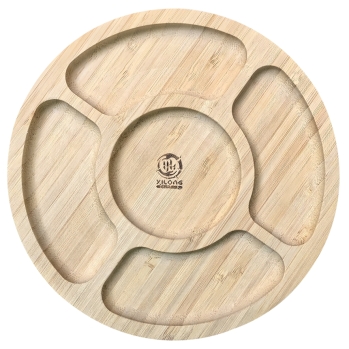Bamboo Bed vs Metal Frame vs Wood Bed: Which One Actually Helps You Sleep Better?
After discussing how bamboo products changed daily routines and improved kitchen spaces, let's talk about the bedroom – specifically, what you're sleeping on. Your bed frame affects more than just bedroom aesthetics. The material impacts everything from sleep quality to maintenance hassles. Having experienced all three options personally, I can honestly say the differences are more significant than most people realize.
The Noise Factor Nobody Mentions
Metal bed frames seem practical until you experience that first squeak at 2 AM. Every movement creates noise as metal joints shift and screws gradually loosen. Some people don't notice, but light sleepers find this incredibly frustrating. Tightening screws helps temporarily, but the problem returns within months.
Wood beds fare better initially but develop their own creaking sounds as the material ages and joints loosen. The natural expansion and contraction of wood with humidity changes creates movement in connections over time.
Bamboo beds stand out here. The natural flexibility and density of bamboo absorbs movement without the squeaking typical of metal frames. The material's stability means joints stay tight longer. If you've ever been woken by your partner rolling over and making the bed creak, you understand why this matters for sleep quality.
Temperature and Comfort Differences
Metal frames conduct temperature, making them feel cold in winter and sometimes uncomfortably warm in summer if they're in direct sunlight. This temperature transfer affects the overall sleeping environment more than you'd expect.
Traditional wood beds perform better with temperature but can feel heavy and solid in ways that don't breathe well. Some woods also absorb and hold moisture, which can create musty smells in humid climates.
Bamboo naturally regulates temperature and moisture. Similar to how bamboo cutting boards resist odor absorption as we discussed in kitchen comparisons, bamboo beds help maintain a fresher sleeping environment. The material breathes better than solid wood while feeling warmer and more natural than metal frames.
Durability Over the Years
Metal frames often look sturdy but tend to bend or dent if you move frequently or have active kids. The paint or coating chips at stress points, creating an worn appearance that's honestly quite shabby looking within a few years.
Quality wood beds last longer aesthetically but require careful handling. Wood can crack if too dry, warp if too humid, and scratches show prominently on dark finishes. Remember those maintenance challenges we discussed with different materials? Wood beds need regular checks and occasional treatment to maintain their integrity.
Bamboo beds combine the best aspects of both. The material's natural strength prevents the bending issues of metal while its density resists the cracking problems of traditional wood. Bamboo's moisture resistance means less warping and fewer humidity-related issues. Many users report their bamboo beds looking nearly new after several years of use.
Assembly and Moving Considerations
Metal frames typically involve numerous bolts and complicated instructions. Assembly takes time, and you'll need the right tools. Worse, frequent assembly and disassembly weakens connections, making metal frames problematic if you move often.
Heavy wood beds present different challenges. They're difficult to move, often requiring multiple people just to position them. The weight makes rearranging bedroom furniture a significant project rather than a simple task.
Bamboo beds usually weigh less than solid wood equivalents while remaining sturdy. This lighter weight makes assembly easier and moving more manageable. If you've struggled wrestling a heavy wood bed frame around tight corners, you'll appreciate this practical advantage.
Style and Bedroom Aesthetics
Metal frames often look industrial or minimalist – great if that's your style, but they limit decorating options. The cold appearance of metal doesn't create the warm, restful atmosphere most people want in bedrooms.
Wood beds offer classic appeal and work with many decor styles. However, certain woods look dated quickly as trends change. That dark wood bed frame that seemed elegant five years ago might now feel heavy and old-fashioned.
Bamboo beds provide versatile natural appeal similar to how bamboo kitchen items created cohesive looks without matching everything perfectly. The warm tones work with modern, traditional, or eclectic bedroom styles. Bamboo ages gracefully, maintaining appeal rather than looking dated as trends evolve.
Maintenance Reality Check
Metal frames need periodic tightening of connections and touch-up paint for chips and scratches. Cleaning metal frames reveals every fingerprint and dust particle, requiring frequent wiping to maintain appearance.
Wood beds demand more involved care. They need dusting, occasional polishing, and protection from moisture. Scratches require specialized repair products. As discussed in our maintenance articles, some materials just demand more attention than others.
Bamboo beds require minimal maintenance – basic dusting and occasional damp wiping. The natural properties that make bamboo products easy to care for in kitchens apply equally in bedrooms. No special treatments, no complicated care routines, just simple cleaning that takes minutes.
Cost and Value Analysis
Metal frames usually cost least initially, making them tempting for budget-conscious buyers. But remember our discussion about choosing based only on price being a common mistake? Cheap metal frames often need replacement within a few years, eliminating that initial savings.
Quality wood beds represent significant investments, with premium hardwoods costing substantially more. While they can last decades, the higher cost and maintenance requirements make them less practical for many people.
Bamboo beds typically fall between metal and premium wood in price, offering better long-term value than metal with less maintenance than wood. The durability and lower care requirements mean lower total ownership costs over time – the same value proposition we've discussed with other bamboo products.
Health and Environmental Factors
Metal frames are inert but offer no health benefits. Some people find the industrial materials don't create the relaxing atmosphere needed for quality sleep.
Wood beds made from traditional hardwoods contribute to deforestation concerns. Treatments and finishes on wood beds sometimes off-gas chemicals that affect indoor air quality.
Bamboo beds align with growing environmental consciousness without compromising comfort. The sustainable growth cycle of bamboo addresses environmental concerns while the natural material creates a healthier bedroom environment. This matters increasingly to people making conscious lifestyle choices.
Real User Experiences
People switching from metal frames to bamboo beds consistently mention improved sleep quality and the absence of annoying squeaks. Those upgrading from wood beds appreciate the lighter weight and easier maintenance while maintaining the natural aesthetic they prefer.
The transition parallels experiences we've heard about switching from plastic to bamboo kitchen items – initial skepticism followed by genuine appreciation of practical advantages that make daily life more pleasant.
Making Your Choice
Consider your priorities: Do you move frequently and need lightweight furniture? Does bedroom noise affect your sleep? Are you willing to invest in regular maintenance? Your answers guide which bed type suits your actual needs rather than just your budget or appearance preferences.
For most people, bamboo beds offer the best balance of comfort, durability, maintenance, and cost. They address common complaints about metal frames without the drawbacks of traditional wood beds.
Conclusion: Sleep Better, Stress Less
Your bed frame affects sleep quality and bedroom satisfaction more than most people realize. Bamboo beds combine practical advantages – no squeaking, easy maintenance, comfortable temperature – with aesthetic appeal and environmental responsibility. Just like bamboo improved kitchen experiences and daily routines, the right bamboo bed can genuinely enhance your sleep environment and bedroom satisfaction.







